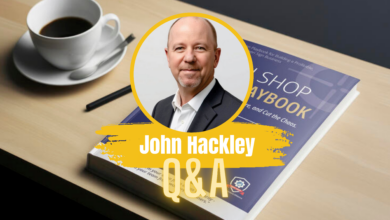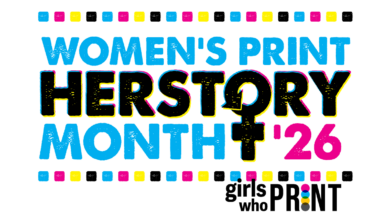I’ve had the honor of working with many project and program coordinators, managers, and senior managers over my long career. Just like in any part of your business, these team members have ranged from bad, mediocre, and adequate to very good, and some have even had otherworldly superpowers. I’ve even seen a few that have systematically graduated through all these categories and have risen to the top echelon to be iconic, customer service-driven heroes.
Occasionally, you will find a handful of these talented people that start fast and get great quickly and, over time, continue to amaze and dazzle you and your clients. These diamonds are hard to spot, but when they are effective they can transform your business and its trajectory of success.
As you grow, you will ultimately need project managers (PMs) and hopefully, duplicate that group into a unified team as you add more opportunities and customers. Let’s face it; your company (and your competitors) can all make/sell/install/service signs, graphics, and wraps. You probably even supply banners, promo items, decorated apparel, and other things to be a single source branding partner. But what sets you apart in this competitive market? Speed? Quality? Price? Location? Unique customer experiences? Some or all of the above?
What exactly is your unique selling proposition?
I always believed that if you do what you say you are going to do and do it on time, you will automatically set yourself apart. Sadly, many in our industry fall flat on these two promises and leave the door wide open for those that can capitalize on these simple tenets. Since our products, pricing, and quality are very similar among firms, great project management is a clear path to stand out and differentiate your business.
What is great project management?
It is the process of leading the work of a team to achieve all project goals and milestones within given time constraints. You need a variety of hard and soft skills to be a successful project manager.
Temperament is important, and many skills can be learned through education or work experience. On-the-job training and mentoring by a seasoned PM is invaluable. Some possess natural PM skills; they have an innate ability to keep things in order and keep people on task through teamwork.
Exceptional project managers usually understand risk management; they can make conscious decisions to maximize the upsides and minimize the downsides of actions. They see the potential for profit or loss and the decisions that lead to either outcome. They can identify stakeholders through the project and are attuned to the measures of success and how each person’s decisions and actions could contribute or detract from the objectives.
Effective PMs understand cost management and can even present estimates to decision makers for approval. Balancing cost, time, and scope boundaries help keep the project in budget and that can define the project and customer experience.
Clear writing and reading comprehension are vital skills for any PM team. Technical documents, legal jargon, contracts, and city permit regulations play a prominent role in the PM process. Interpreting these items and turning the information into briefs for all involved (and other departments within your organization) are critical to success.
Planning and forecasting require that the PM team has a penchant for order, organization, measuring goals, understanding charts, spreadsheets, and other visual representations of project timelines and milestones. A PM should be good at predicting project outcomes (such as profitability) for managers and company leadership. They should be comfortable with data analysis to interpret past project performance and use that information to help navigate the current project.
A superstar PM often has leadership skills to guide others through a project. That may include facilitating meetings, holding others in the group accountable, and enforcing time constraints. Being a strong communicator is vital since the PM may be the point of contact for all parties who may have no contact with each other. This may include mediating conflicts among stakeholders while handling negotiations about time, scope of work, and cost. This is akin to being a diplomat; the PM must understand everyone’s role and perspective and succinctly communicate to all parties across the project. I have not seen an effective PM who took time management lightly. They often are very comfortable with juggling multiple deadlines, constraints, stakeholder needs and other priorities at once. If the PM can calmly and consistently manage complex timelines and help others stay on task while foreseeing complications and suggest solutions to stay on track, they have a real superpower.
Patience is a must. A PM cannot give into frustration when challenges arise, or milestones aren’t met. They must remain calm and neutral to be successful during the process. Patience through challenges can inspire and diffuse conflicts, while impatience or frustration can demoralize and exacerbate problems.
The best PM leaders are adaptable and have critical thinking skills. Being tech-savvy is important because the role of a PM is understanding and properly using project management software or even customer interface systems if required. Metrics, analytics, document creation, and communication will be part of the project oversight, and these require a nimble mindset. Each PM must be able to make quick decisions withing a set of constraints and how the analyzed data may impact the future of the project.
At present, I still interact daily with a senior project manager who has worked with me since 2006. She is a true extension of my core beliefs from a selling, marketing, client relationship, and PM perspective. We make a great team. She has been fundamentally critical to the success of my personal sales. I’m proud to say that she helped to grow and define my company’s value before and after it was sold and is a true asset to our present employer.
What are the best qualities that make her so invaluable as a senior PM?
She is a planning wizard, chief coordinator, problem-solving genius, trusted leader, and assertive diplomat. She sets high standards for herself and others, is a great communicator, a relationship builder, tactical, a talented designer, and is extremely agile and fast. She does the work of three people with a persistent drive that is enviable. And her loyalty is extremely humbling.
As you build your PM group, I hope you have the good fortune to find people like her; that engage quickly and take pride in their duties backed with a strong work ethic. You will still need to mentor, coach, advise, listen, trust, commit, engage, plan, document, ask questions and be patient. After all, a diamond takes a lot of pressure and time to create.




